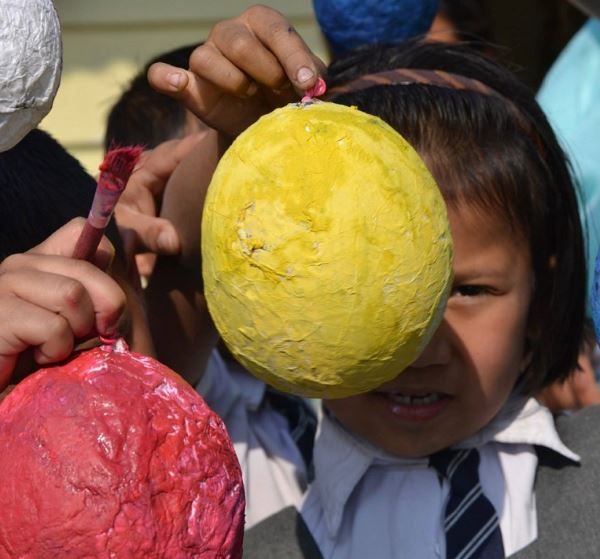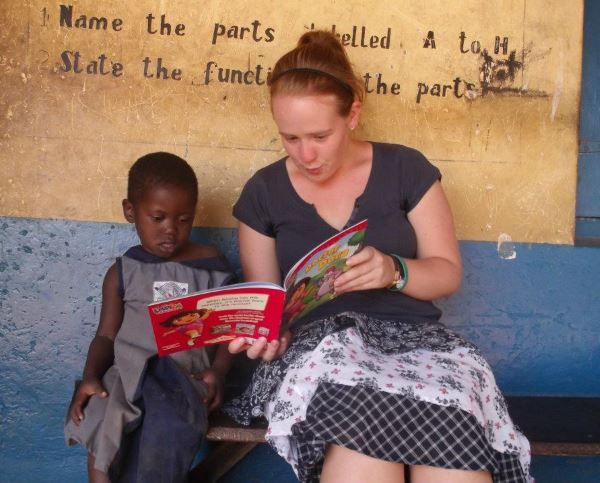Volunteer Teaching in Africa and Asia
Schools lie at the heart of the rural communities in which we operate.
Working in a school is therefore a great way of integrating into a community, with a network of staff to look after you and the opportunity to use your skills to give assistance where it is genuinely needed.
Education is a privilege that can often be taken for granted.
In many of the villages in which we work, whilst education is provided, the standards are hindered by a lack of facilities or teachers.
The enthusiasm and work of AV gap year volunteers is valued by schools, not only for the extra help they provide but also for the inspiration and confidence that is passed on to the children they work with, spending time with them and adding a global dimension to their education.
Image: Geography class, The Lepchas, India
What can I teach?
Gap year volunteer teaching in Africa will include the full range of general subjects.
Teaching in Asia is mostly English.
Get creative
Facilities in the schools can be sparse, with minimal furniture, stationary or teaching aids.
Most classrooms will have desks or benches, a blackboard and chalk.
FAQs
Do I need qualifications?
AV volunteers do not need any formal qualifications. We work hard to ensure that you are not teaching out of your depth and have prior knowledge of any subjects you take outside of English. In most cases you will be following a curriculum and will have textbooks to guide you.
Training in teaching techniques is given on the orientation course at the start of the project. For those who would like to do extra preparation and undertake a TEFL course we recommend TEFL Express.
Teaching in the classroom
With your own experience of school and fluency in English you have a lot of knowledge and experience which you can share.
Officially, you are an assistant teacher. In practice, this means that you may be helping other members of staff, taking classes with another AV volunteer or on your own.
Facilities in the schools can be sparse, with minimal furniture, stationary or teaching aids. Most classrooms will have desks or benches, a blackboard and chalk. Class sizes vary from 30 to 130 and, especially in the bigger classes, you teach as a pair with your partner.
We work with a mix of primary and secondary schools (6-16 years), but the majority are primary. In secondary schools we will not ask you to teach beyond the GCSE level and only then if you are happy.
You will nearly always be covering part of the local curriculum and may be working towards exams at the end of the term.
Outside of the classroom
You will be very popular if you help with PE, organise sports and games between schools and run extra-curricular activities like drama, art, music and dance, and of course, more sport!
Not all schools have an ‘after school’ life. In some places, like Nepal, sport is minimal because children have to walk up to two hours to school and two hours home again.
If activities don’t exist you can start them – a school band, a dance class or an art club. In the past AVs have organised talent shows, school magazines and sports days – just use your initiative and talk to us for advice and inspiration.
How long will I be teaching for?
We work in partnership with our schools, determined to be useful to them. You can volunteer for as long as you like, but the longer you stay, the more impact you will have on the community, and you’ll also see more benefits to your skills too. It can often take up to two weeks to get completely into your stride. Most AV volunteers leave wishing they could stay longer!
Helping individuals
Class sizes can often be very big (60+) with a great mix of abilities and ages within them. It is therefore hard for teachers to always ensure that students don’t fall behind – usually those at the back of the class who lack the confidence to ask for help.
AV volunteers help by providing extra assistance to these students – through smaller group lessons you can teach them to read and write in English with the time and patience that is needed.
Organising a reading club or after school help sessions will be greatly appreciated and could make a big difference to the lives of these individuals. You may also be asked to help adult members of the community who have left school but are eager to learn.
Where would you like to go?
Whether you’d love to explore Africa or Asia, our partner communities always welcome teaching volunteers, so the world’s your oyster…


